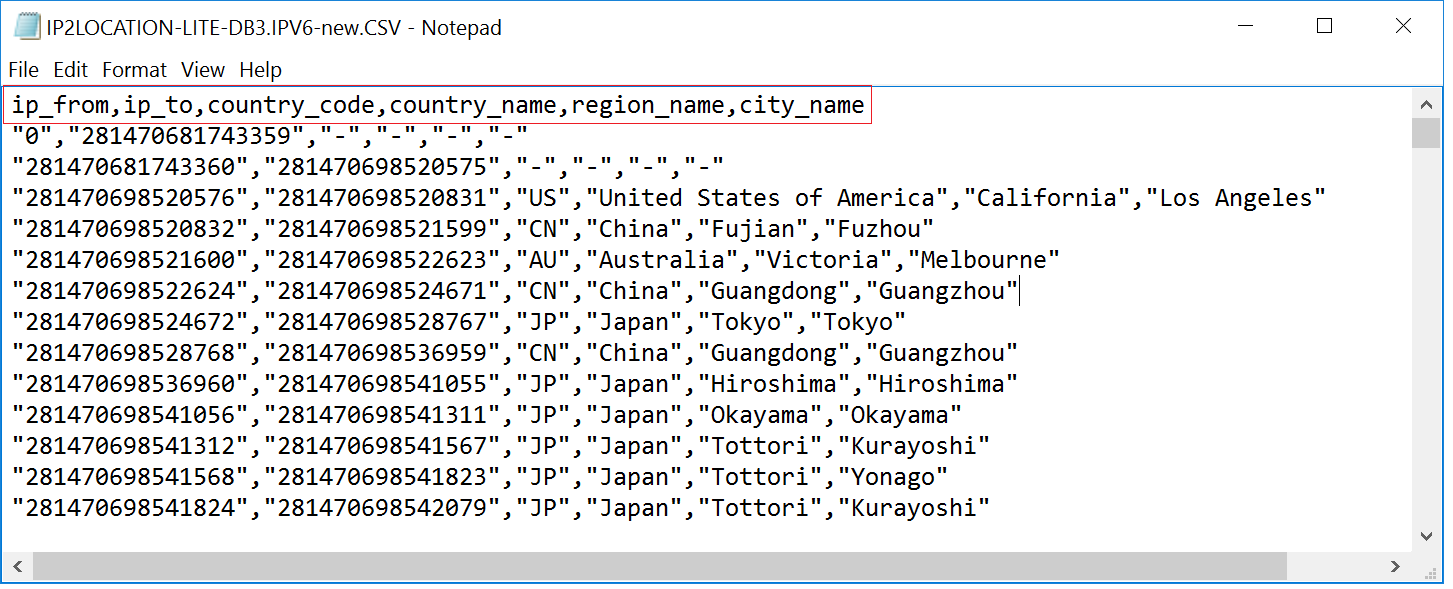

IP2Location-Lite – we don’t recommend this service given the overall accuracy is too low. That said, we don’t recommend MaxMind databases if high city-level accuracy and coverage are required - the city-level accuracy is especially bad in the ARIN region, however, we do see relatively good city-level results for MaxMind in the RIPE NCC and APNIC regions. MaxMind – we recommend using the commercial version of MaxMind over the public version if city-level accuracy and better coverage are required. NetAcuity has the best combination of coverage and accuracy across all regions. NetAcuity – we recommend using this to geolocate routers if using a geolocation database is the only available option. That said, if you intend to use one of the geolocation databases we tested, here are our recommendations: Researchers and network operators need to be aware of inaccuracies and their impact on their results. Overall, all geolocation databases have room to improve their router geolocation accuracy at both country- and city-level. Like the other databases, NetAcuity is least accurate in ARIN with only 69.2% accuracy, which is still about 30% better than that of the MaxMind-Paid. NetAcuity shows high coverage for all regions with comparable or better accuracy results to other databases. IP2Location-Lite has almost perfect city-level coverage in all regions but has relatively low accuracy, especially for ARIN addresses.Īpart from ARIN, MaxMind seems to provide city-level locations only when it has some confidence in them, which could explain their low city-level coverage and relatively good city-level accuracy. Perhaps the most interesting result here is the low city-level coverage of the MaxMind databases.įigure 6: NetAcuity (99.6% of ground truth data). Table 1 shows the databases coverage results at both country- and city-level. To evaluate the databases coverage, we extracted a dataset of around 1,638k router interface IP addresses from the CAIDA topology dataset and geolocated them in all databases. We quantified the coverage and accuracy of the databases at country- and city-level, and evaluated and compared the performance of the databases regionally to provide recommendations to users who want to use databases to geolocate routers. Database ip2location free#
We studied four popular geolocation databases, two of which are free - MaxMind GeoLite and IP2Location DB11.Lite - and two that are commercial - MaxMind GeoIP2 and Digital Envoy NetAcuity. In our paper ‘ A Look at Router Geolocation in Public and Commercial Databases’, which was recently accepted by the ACM Internet Measurement Conference 2017 committee, we focus on router geolocation in databases in an attempt to complement previous databases evaluation studies. As a result, the users are left unsure about the reliability of geolocation databases over infrastructure IP addresses such as those of router interfaces. But how reliable are these in terms of coverage and accuracy at both country- or city-level resolutions?Įvaluation studies of previous geolocation databases are dominated by the results over end-host addresses. Geolocation databases are often used by both researchers and network operators to learn the real-world location of a given IP address. Research examples include the detection of routing paths that experience international detours - that is paths that start and end in the same country but visit other countries in between - and studying where censorship and monitoring activities happen around the world.įor a network operator, location information might provide more context to debug emergent network issues. Geolocation databases are used by researchers and network operators to learn the real-world location of a given IP address.Īs a network researcher or operator, you might be in a situation where you need to know the real-world location of some routers in a network path.





 0 kommentar(er)
0 kommentar(er)
